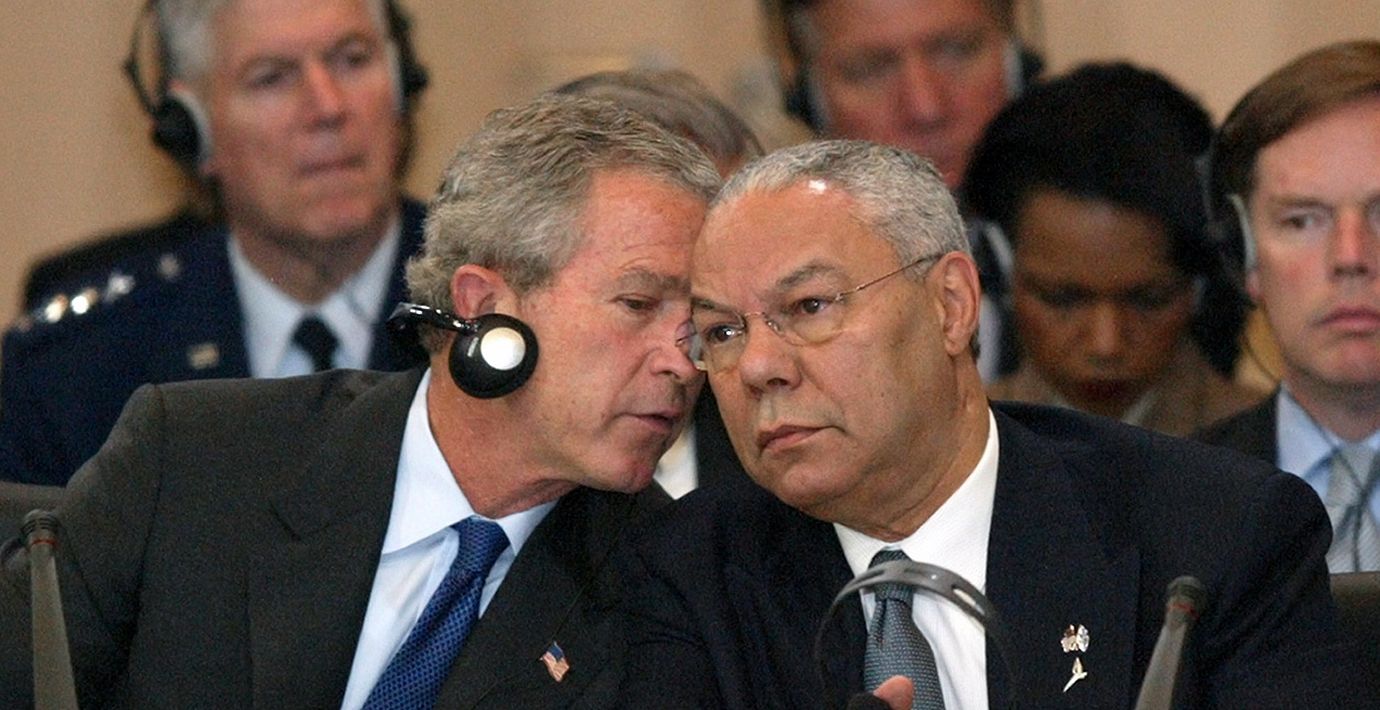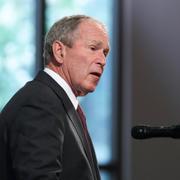Wikipedia (en)
The Iraq War was a protracted armed conflict from 2003 to 2011 that began with the invasion of Iraq by the United States–led coalition which overthrew the Iraqi government of Saddam Hussein. The conflict continued for much of the next decade as an insurgency emerged to oppose the coalition forces and the post-invasion Iraqi government. An estimated 151,000 to 1,033,000 Iraqis died in the first three to five years of conflict. US troops were officially withdrawn in 2011. The United States became re-involved in 2014 at the head of a new coalition; the insurgency and many dimensions of the armed conflict continue. The invasion occurred as part of the George W. Bush administration's War on Terror following the September 11 attacks despite no connection of the latter to Iraq.In October 2002, Congress granted President Bush the power to decide whether to launch any military attack in Iraq. The Iraq War began on 20 March 2003, when the US, joined by the UK, Australia, and Poland launched a "shock and awe" bombing campaign. Iraqi forces were quickly overwhelmed as coalition forces swept through the country. The invasion led to the collapse of the Ba'athist government; Saddam Hussein was captured during Operation Red Dawn in December of that same year and executed three years later. The power vacuum following Saddam's demise and mismanagement by the Coalition Provisional Authority led to widespread civil war between Shias and Sunnis, as well as a lengthy insurgency against coalition forces. Many of the violent insurgent groups were supported by Iran and al-Qaeda in Iraq. The United States responded with a build-up of 170,000 troops in 2007. This build-up gave greater control to Iraq's government and military, and was judged a success by many. In 2008, President Bush agreed to a withdrawal of all US combat troops from Iraq. The withdrawal was completed under President Barack Obama in December 2011.The Bush administration based its rationale for the Iraq War on the claim that Iraq had a weapons of mass destruction (WMD) program, and that Iraq posed a threat to the United States and its allies. Some US officials falsely accused Saddam of harbouring and supporting al-Qaeda. In 2004, the 9/11 Commission concluded there was no evidence of an relationship between the Saddam Hussein regime and al-Qaeda. No stockpiles of WMDs or an active WMD program were ever found in Iraq. Bush administration officials made numerous claims about a purported Saddam–al-Qaeda relationship and WMDs that were based on sketchy evidence rejected by intelligence officials. The rationale for war faced heavy criticism both domestically and internationally. Kofi Annan called the invasion illegal under international law as it violated the UN Charter. The Chilcot Report, a British inquiry into its decision to go to war, was published in 2016 and concluded peaceful alternatives to war had not been exhausted, that the United Kingdom and the United States had undermined the authority of the United Nations Security Council, that the process of identifying the legal basis was "far from satisfactory", and that the war was unnecessary. When interrogated by the FBI, Saddam Hussein confirmed that Iraq did not have weapons of mass destruction prior to the US invasion.In the aftermath of the invasion, Iraq held multi-party elections in 2005. Nouri al-Maliki became Prime Minister in 2006 and remained in office until 2014. The al-Maliki government enacted policies that alienated the country's previously dominant Sunni minority and worsened sectarian tensions. In the summer of 2014, ISIL launched a military offensive in northern Iraq and declared a worldwide Islamic caliphate, leading to Operation Inherent Resolve, another military response from the United States and its allies. According to a 2019 U.S. Army study, Iran has emerged as "the only victor" of the war.The Iraq War caused at least one hundred thousand civilian deaths, as well as tens of thousands of military deaths (see estimates below). The majority of deaths occurred as a result of the insurgency and civil conflicts between 2004 and 2007. Subsequently, the War in Iraq of 2013 to 2017, which is considered a domino effect of the invasion and occupation, caused at least 155,000 deaths, in addition to the displacement more than 3.3 million people within the country.




